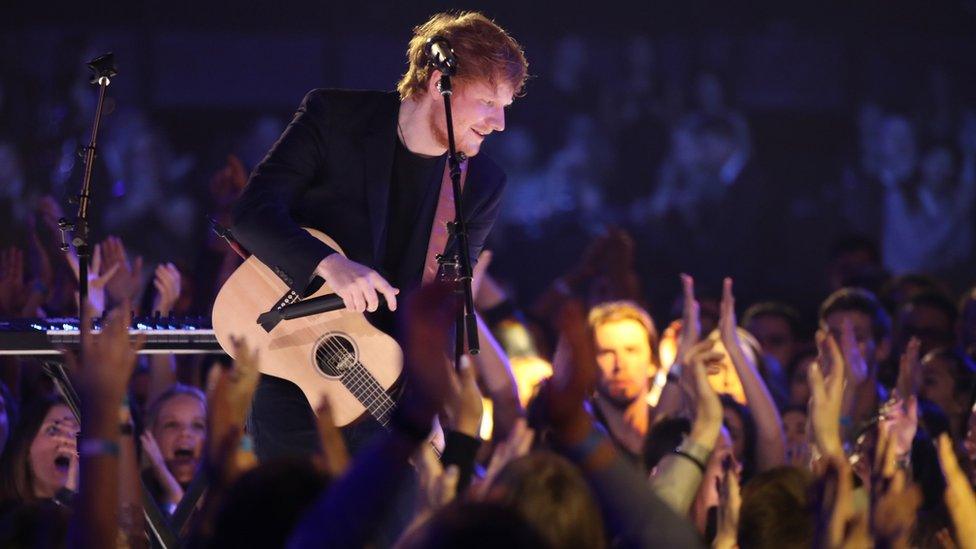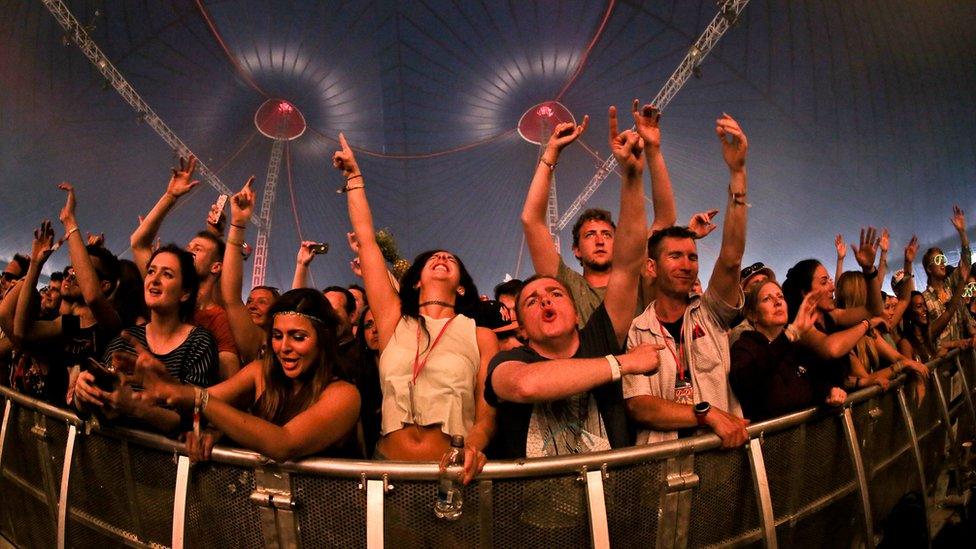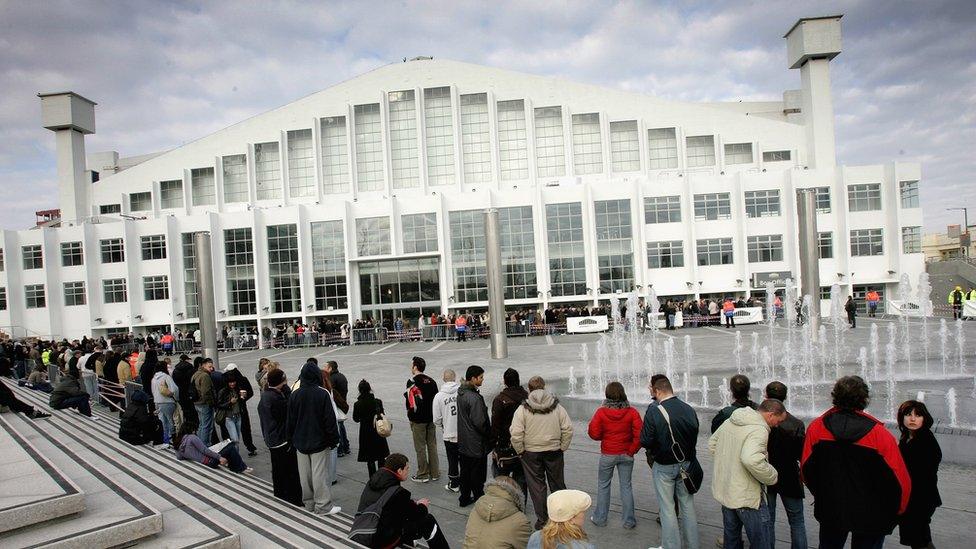Unlimited fines for bulk buying ticket touts
- Published

Online touts who bulk buy tickets and sell them for inflated prices will face unlimited fines under government plans.
An amendment to the Digital Economy Bill means it will be illegal to use "bots" to bypass limits on the maximum number of tickets that can be bought.
Tickets purchased by bots can appear on secondary websites at prices many times greater than their face value.
A Department for Culture, Media and Sport (DCMS) spokesman said the profiteering was "simply not fair".
High profile artists such as Adele and Ed Sheeran have previously criticised the touts and asked their fans not to buy tickets from secondary sites.
Last month, resale site Viagogo was accused of "moral repugnance" for selling tickets to an Ed Sheeran Teenage Cancer Trust gig for up to £5,000.
And an £85 ticket to see Adele at the O2 in London last year was reportedly being sold for £24,840.

As part of the touting crackdown, ministers will accept in full the recommendations of a review by Professor Michael Waterson.
In the report, he suggested ticket sellers should have tougher anti-bot measures in place with a facility to report bot attacks, stronger enforcement of existing consumer rights laws, and the threat of further action if the industry does not act against rogue ticket traders.
Ed Sheeran angry after his tour tickets end up on secondary sites
The government said it wants the big companies in the secondary ticket market to do more to identify ticket touts and differentiate them from individual fans who want to sell tickets for events they can no longer go to.

'Sold out in minutes'

Heavy metal fans Brian and Jane O'Donoghue aim to go to a gig once a month but say that touts make buying tickets "incredibly frustrating".
They recently paid £250 each to see Black Sabbath in Birmingham's O2 Arena, buying from a secondary website where prices were more than double the face value.
"It was the only way," says Brian, 51, from Hereford. "We weighed up going to see Metallica in Copenhagen instead, which including flights and hotel wasn't much more."
He always tries to buy tickets directly but says they sell out "within minutes".
The pair bought face value tickets for their next concert, Iron Maiden, where they have been told to bring their payment card and photo identification.
"That's the way ahead," Brian says. "Although I think there will be a lot of disappointed people who turn up with just their ticket."

If the companies do not make progress, ministers will seek further action to ensure consumer law is being followed.
The government has been under pressure by a number of celebrities to tackle the problem of ticket touting.
You Me At Six singer Josh Francheschi gave evidence to the committee last year calling for bots to be made illegal saying the fans were the "main losers".
Last year, the use of this technology was made a criminal offence in New York after a report found one bot had bought 1,000 tickets in one minute for a U2 concert at Madison Square Garden.
Making it fair
Jo Dipple, chief executive of music industry representatives UK Music, welcomed the move.
"Massive profit is made by people who are taking value out of the music industry and putting tickets out of the reach of music fans," she said.
"Banning bots is a step towards ensuring the ticketing market for live events works more fairly for gig-goers."
Minister of State for Digital and Culture, Matt Hancock, said: "It's unacceptable that touts are misusing technology to bypass security measures and buy up vast numbers of tickets before real fans get the chance, only to sell them on at rip-off prices.
"It's a growing problem that affects too many people."
In December, an enforcement investigation by the Competition and Markets Authority was launched into any suspected breach by this market.
Mr Hancock added: This profiteering is simply not fair, so we are acting to put fans first and improve the chances of seeing our favourite musicians and sports stars at a reasonable price.
"Ticket sellers need to do more, by improving transparency and ensuring that they are acting in the best interests of consumers and help the market work for everyone."
- Published15 November 2016

- Published25 May 2016
